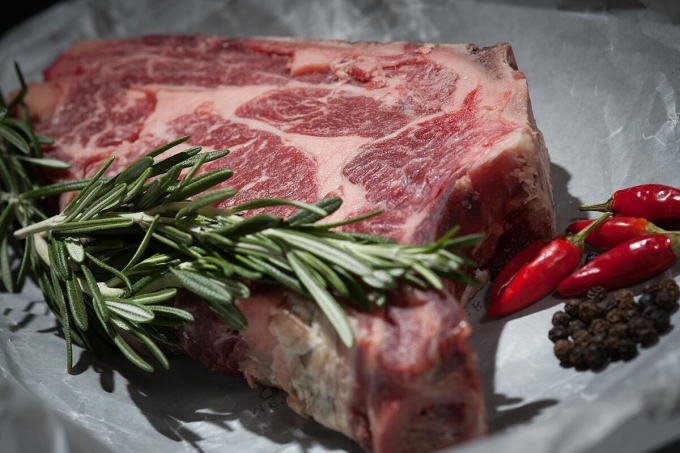US New research suggests that red meat and sugar may be behind the rapid rise in colon cancer cases among young people.
The study, conducted by the Cleveland Clinic, was presented in June at the annual meeting of the American Society of Clinical Oncology. The study included 170 patients with colorectal cancer, 66 of whom had their cancer diagnosed at a young age (under 50 years old).
Scientists tested metabolites, which are produced in the body after food is broken down. They found that people under 50 with colon cancer had lower levels of citrate than older people. Citrate is a compound produced when the body converts food into energy. It can inhibit tumor growth and colon cancer in general.
According to scientists, young people's bodies break down proteins and carbohydrates differently. The amount of red meat (beef, pork, lamb...) and sugar consumed daily is related to this condition.
“The way we use carbohydrates for energy, the way we use protein and amino acids from our diet has a strong relationship with cancer,” said Dr. Suneel Kamath, a gastrointestinal oncologist at the Cleveland Clinic.
A 2021 study also found that consuming too much sugar also significantly increases the risk of developing cancer. Scientists found that adult women who drank two sugary drinks a day were twice as likely to develop colorectal cancer as those who drank less than one a week.

Red meat can cause colorectal cancer. Photo: Pexel
Another review in the European Journal of Epidemiology found that consuming a lot of red meat causes various cancers such as colorectal, breast and lung cancer. After analyzing 9 studies on cancer, the International Cancer Research Fund (IARC) pointed out that consuming 100g of red meat per day increases the risk of cancer by 17%. Meanwhile, eating 50g of processed meat (bacon, sausages...) per day increases the risk of developing colorectal cancer by 18%.
Colorectal cancer is the third most common cancer in the United States and the third leading cause of cancer death in both men and women. The American Cancer Society estimates that about 153,000 new cases of colorectal cancer will be diagnosed this year, including more than 19,000 in people under 50. Scientists warn that the national colorectal cancer rate for people aged 50 to 54 is now nearly 60 cases per 100,000.
The United States is not the only country with alarming statistics. A 2023 assessment found that the rate of early-onset colorectal cancer in Australia was 13.5 per 100,000 people, Norway was 10.5 per 100,000 people, and the United Kingdom was 9.3 per 100,000 people. Many people are misdiagnosed with conditions such as hemorrhoids, irritable bowel syndrome, anemia, and mental health problems.
The American Cancer Society recommends a diet rich in fruits, vegetables, and fiber to reduce the risk of colorectal cancer. Loma Linda University recommends plant-based diets including: vegan, which means no animal products at all; lacto-ovo vegetarian, which means dairy and eggs but no meat; pesco vegetarian, which means plants and fish but no meat; and semi-vegetarian, which means lots of plant foods but occasional meat and fish.
On the other hand, the Mediterranean diet (high in fruits, vegetables, beans, healthy fats, whole grains; low in red meat, seafood, and dairy) may also help prevent colorectal cancer.
Thuc Linh (According to Daily Mail, Medical Today )
Source link


































































































Comment (0)